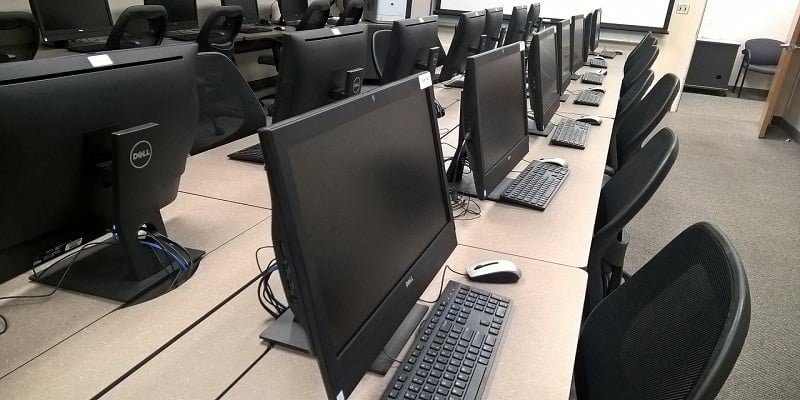Brief Note On Education System And Its Present Requirements:
Transforming Education with AI: From Boring to Engaging Learning:
How boring the lecture was! This is the repeated cliché we hear from students. But what if those boring lectures and monotonous chapters can simply be creative and associative? Wonder how? AI Artificial Intelligence is the answer. AI has affected every walk of life and Education is no exception. Conventional Education has taken a backseat amid the growing focus on leveraging the power of AI. The advent of online Educational sites and mobile apps has transformed the way Education is received. Virtual classes are designed in a way it suits student’s learning styles and interests. This has created a buzz about AI among students as its popularity continues to surge.
Bridging the Education Gap: Unleashing the Potential of AI:
Lack of formal data strategy and interoperability although inhibiting the growth, yet AI has a lot in store for Education. The landscape of Education has changed considerably in the recent past owing to technology disruption, demographic changes, digitization and wealth disparities. The advent of online classes and the availability of information on the go have ignited a debate on the relevancy of the formal Education System. Most of these conversations have emerged following the introduction of Artificial Intelligence in Education. So, let’s understand where we stand currently and how effectively AI can bridge the gap in Education.
What Is AI Artificial Intelligence?
Artificial Intelligence (AI) is a wide-ranging branch of computer science concerned with building smart machines capable of performing tasks that typically require human intelligence. AI Artificial Intelligence can be majorly divided into 4 types. They are Reactive Machines, Limited Memory, Theory of Mind, and Self-Awareness. Some of the classic examples of AI are Siri, Alexa and other smart assistants, Self-driving cars, Robo-advisors, Conversational bots, Email spam filters, Netflix’s recommendations, etc. Robots/Machines can develop the qualities of Thinking humanly, Thinking rationally, Acting humanly, Acting rationally with proper coding and programming. There is a famous quote “Everybody is a genius. But if you judge a fish by its ability to climb a tree, it will live its whole life believing that it is stupid.” Our modern learning system is not personalized. The one-size-fits-all approach in Education is one of the biggest gaps in our modern Education System.

AI In Education Sector:
AI in Education: Personalization Revolutionizing Learning Choices:
Students interested in arts have to study science and vice-versa as syllabi are not designed in keeping students’ choices in mind. This problem exists more at an elementary level. However, AI integration in Education will take personalization to a level never thought of before. AI has transformed Education in many ways, right from making learning personalized to improving grading systems to enabling automation and simplifying administrative tasks. Personalization has made Education more engaging and flexible. AI enables the machine to learn the preferences and desires of an individual. Personalization has benefited students of all categories right from primary school students to those pursuing higher degrees. AI allows students to select personalized courses based on their interests, take tests and access their performance through their digital devices. In addition, AI has enabled institutions to customize their courses depending on students’ needs.
AI: Personalized, Global Education:
Thus, AI has provided a solution to one of the biggest limitations of our modern Education Systems where everybody is exposed to similar content irrespective of their interests. Tailored courses will help in easing the students’ pressure as they will stop comparing themselves to each other’s. Apart from personalizing the classrooms, AI has also made it possible that quality Education reaches every corner of the world. AI tools can make global classrooms available to students across the boards in their regional languages. Further, students with hearing and vision impairments can rely on AI for Quality Education. Thus, AI has the potential to address the concern of students from any group. Another aspect where AI can be a game-changer in Education is its ability to evaluate students’ performance and decide grades. Educators spend a significant amount of time on grading and tests.
Efficiency through AI Automation:
The grading system plays a crucial role in deciding students’ careers therefore accuracy in grading system is imperative. However, despite the best efforts, the grading process has been subjected to human errors and is time-consuming. AI eliminates manual errors and provides an accurate grading system. In addition, it analyses how students are receiving the course based on their performance on the tests. AI-enabled automation in the Education sector has made Education convenient. AI accesses the performance of every student without any manual intervention. It speeds up the process of evaluation, grading, and other related tasks, thereby, saving precious time. Further, Education is not all about delivering lectures and conducting assessment tests. It involves administrative, often repetitive, tasks that are considered dull. Automation can be an ideal solution for such tasks as it can help reduce the errors in these tasks, not to mention the endless stress.
Present Scenario Of Artificial Intelligence In the Education Sector:
AI Revolutionizing Indian Education:
As per an estimate, schools invest around USD 160 billion in Education Technology globally. This investment is anticipated to increase further. With aggressive investment and a promising future, AI is projected to be a game-changer for the Indian Education System as well. In the country has over half of its population below 25 years of age. Technology adoption in youth and millennials is comparatively higher. Buoyed by the introduction of the New Education Policy, skill-based learning is taking center stage in the Indian Education System. Considering the growing popularity of Artificial Intelligence in Education, India’s Central Board of Secondary Education (CBSE) has included AI in its syllabus. CBSE has recently partnered with tech giants IBM to integrate AI in nearly 200 Indian schools.
Transforming Education with Immersive Technology:
The introduction of cutting-edge technologies in Education will enhance the quality of the workforce and help in establishing India as a leader in disruptive technologies in the 21st century. AI-based learning platforms would generate huge data. These data can be meaningful in understanding students’ learning behavior. Institutions can use these data to understand students’ performance and the time they are taking in understanding a particular concept. There has been a long debate on our Education System encouraging rote learning. However, students, especially children learn something much more easily when they are exposed to it practically. AI has paved the way for the use of VR (Virtual Reality) and AR (Augmented Reality) in Education. A VR headset is capable of conducting basic to complex experiments, thereby making the learning more associated, active and meaningful.

Future of Artificial Intelligence In the Education Sector:
Preparing Students for AI Future:
Humanoid robots may not replace teachers in the classroom anytime soon. However, Computer Intelligence will certainly transform the way Education is received today. Digital literacy in conjunction with AI, machine learning, and big data analytics will not only create a robust foundation but improves one’s cognitive ability to excel in the era of AI economy. Since today’s students need to work in the future environment where AI will be the reality, it’s important that students are exposed to such technologies sooner than later.
AI: Shaping Future Education:
Although Education has been slow in the adoption of AI, the days are not far when artificial brains will nurture human brains in a more effective way. Formal Education may not disappear completely, but AI will certainly bring fundamental changes in Education at all levels from K-12 to Universities. Like any other disruptive technology, AI has its pros and cons. However, it’s difficult to move forward if we focus more at downsides but get benefits instead.
**********
Disclaimer: – Views expressed are the author’s own.




